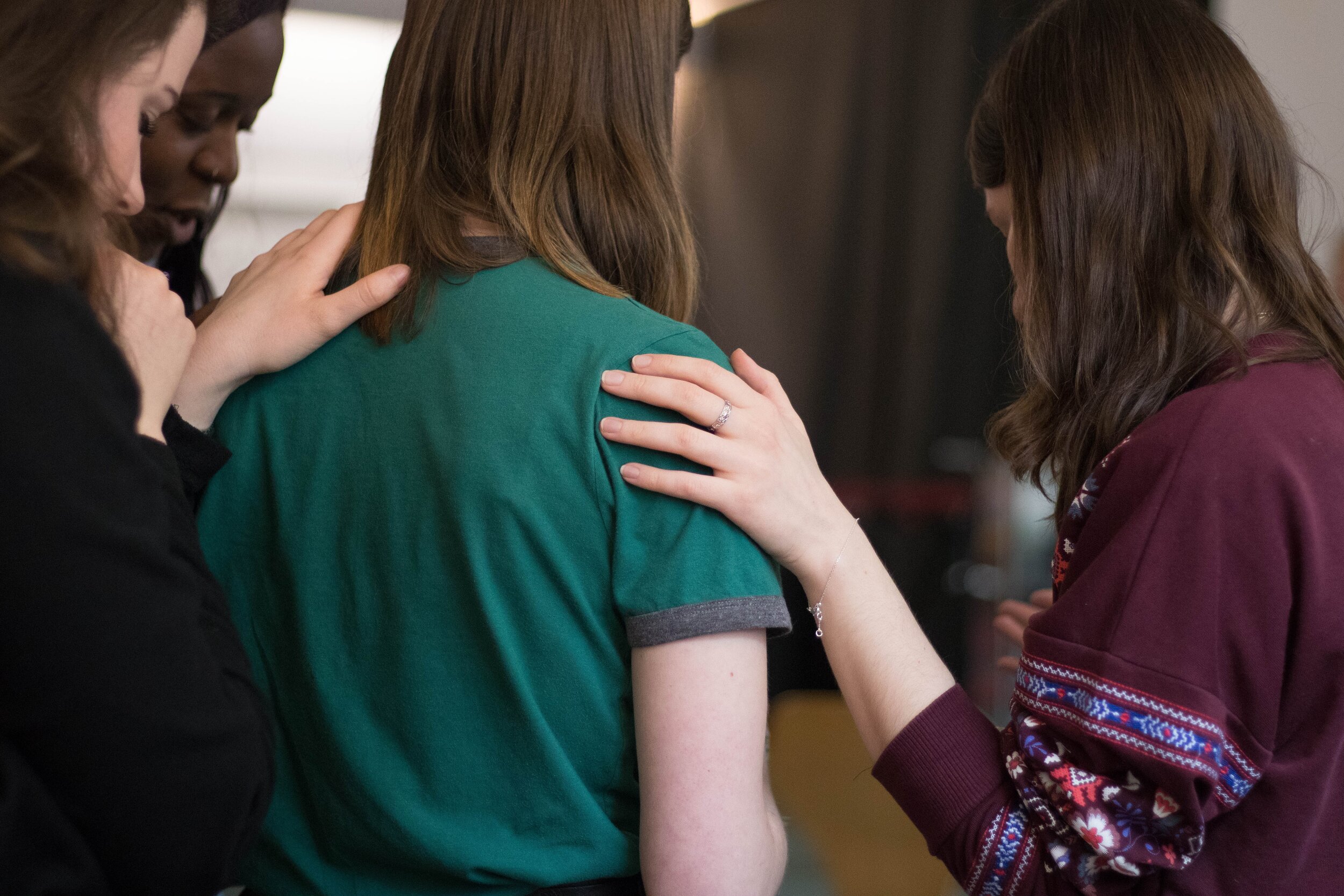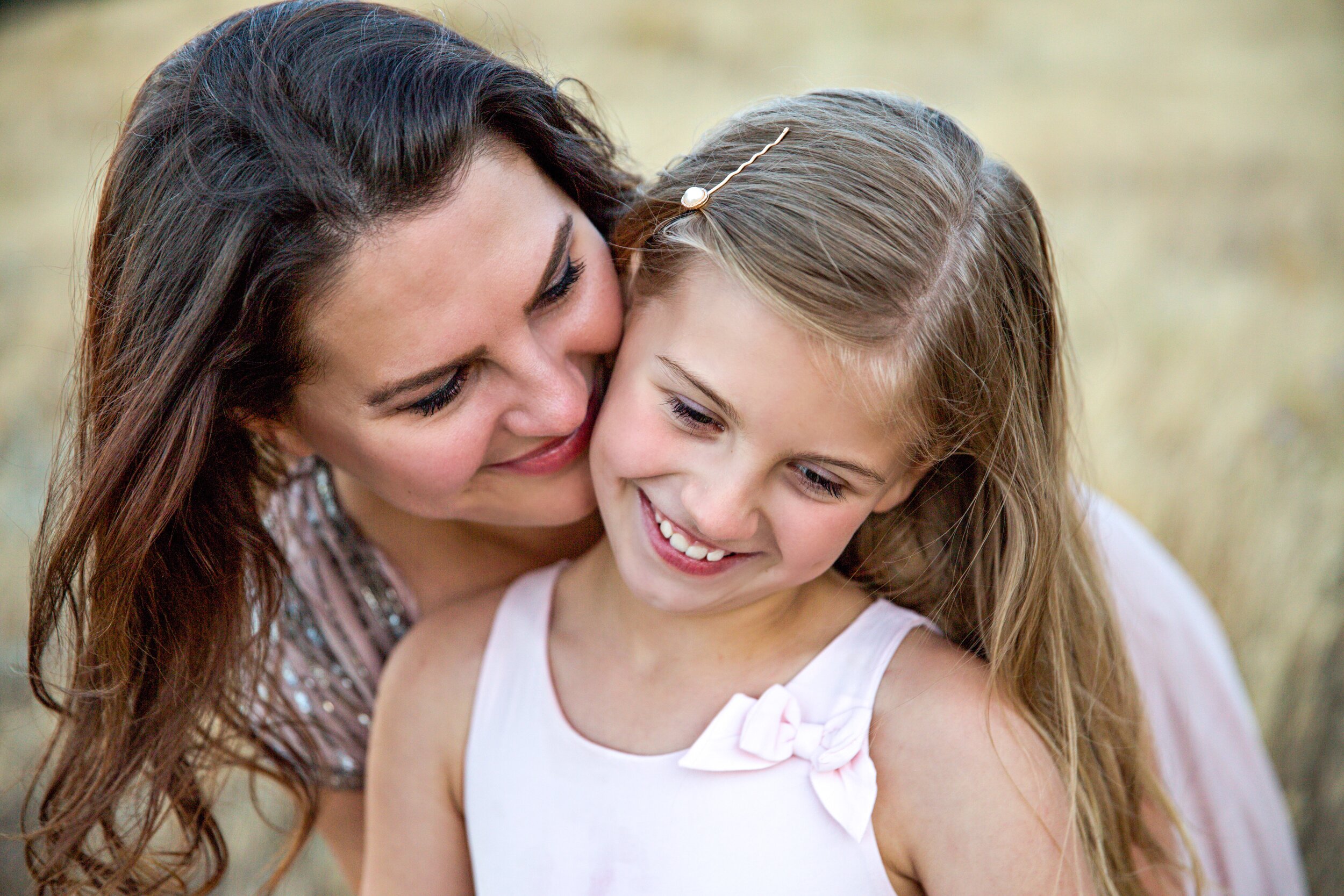Let’s take a minute to paint a picture. Will you humor me for a few moments? Imagine you are exhausted from a long day. Your children have exercised a special sort of rebellion and misbehavior this week. There are about 10,000 things on your to-do list and it seems that every time you cross something off, another three things need to be added. The only interaction you have found with your spouse this week is a few moments in bed to update each other on your days before succumbing to sleep due to complete exhaustion. The words you would use to describe your week are chaos and weariness. (Stay with me here - something good is coming.)
In the midst of this not-so-great week, you found time to have coffee with a friend. You thought about cancelling, but decided you would be exhausted either way, so you go. From the moment you walk into the coffee shop your friend can tell you’ve been having a rough time. She asks you all the right questions and allows you to vent honestly about all that’s going on. You feel safe and comfortable to be completely open. As you walk to your car, you feel a bit of rejuvenation for the first time this week. It feels like everything will be okay. You feel, somehow, less exhausted. This, my friends, is social rest.
What Is Social Rest?
A lot of us will hear the phrase social rest and think it means we need to take some time alone. That, however, is not the what is meant by social rest. When we experience a lack of interaction with others that leaves us feeling lonely and isolated, we are in need of social rest. You may find yourself longing for adult conversation that goes beyond playing house and building Legos. We all need to experience depth and connectedness in our relationships with others. When our days lack this, we need to find social rest.
Social rest is about creating space for those relationships that bring us revival. Social rest feels like interacting with another person and leaving fuller than you started. Social rest comes from a meaningful interaction with another where there is no fear of disapproval or rejection. Social rest develops from the freedom to be completely authentic with another human.
How Do You Know If You Need Social Rest?
As parents, we have schedules that are full from the minute we wake up until the minute our head hits the pillow. We often have more activities and obligations than we have hours in a day. Social connection just does not seem possible when we allow the calendar to dictate our lives. We are left making most of our connections through texts and social media. A connection online can seem to be an easy fix for lack of connection with others. However, nothing can replace a genuine in-person connection.
While connecting online can seem like a lifeline sometimes, it does not meet all of our human need for personal connection. When you read a text, there is no way to see facial expressions and hear tone of voice. So much is lost when not meeting in person. And honestly, sometimes a hug is what we really need - and that is saying a lot coming from someone whose love language is not physical touch!
As parents, making these connections takes work, but at our core, we all long for them. If you’re not sure whether you need social rest, here are a few ways to be sure:
You prefer fostering online relationships rather than face-to-face relationships
You feel alone in the world
You feel disconnected and disengaged with friends and family
It is difficult for you to maintain close relationships or develop friendships
You isolate yourself from others
I know for many of you, at least one of those statements rings true. If that’s you, it’s time to learn how to find social rest.
How Can You Get Social Rest?
Social connection can seem unapproachable in the busy lifestyles some of us have, but I encourage you to seek social connection despite your full schedule. Here are a few ways you can foster social rest in small ways:
“If you are not intentional about doing the things you need, they won’t happen.”
Talk to a friend or close family member on the phone. Nothing beats an in-person connection, but some days a phone call is all we can manage. Resist the urge to simply send a text or like a photo, and actually reach out for conversation. Talk about how things are going for you, but also take time to listen to your friend and hear about their current triumphs and struggles. Don’t forget, it isn’t just about what we can receive, it is about us being there for others, as well.
Set a time with your partner or spouse that is just for connecting on a regular basis. Set a timer for 15 or 30 minutes and discuss your days and emotions. As partners, we often get lost in our to-do lists or individual responsibilities. By setting apart time to just be with each other, you create space for social rest. If you have trouble connecting, I recommend doing an exercise like the Comfort Circle, developed by Milan and Kay Yerkovich. (You can find worksheets to guide this exercise here: https://howwelove.com/resources/) Or keep it simple and just talk about your “highs” and “lows” for the day.
Go on a walk with a friend. This can be doubly restful! We all need to be active and this can also be a great time to connect with a friend AND get our bodies moving. Still have a little one at home? Push a stroller while you walk and talk. Prefer some kid-free time? Set your alarm a little early and arrange to meet a friend before all the kids are awake. Meeting someone is a great motivator to get out of bed, even if you aren’t a morning person. As caretakers, we all have seasons where free time is scarce. One thing I know for sure - if we are not intentional about doing the things we need, they won’t happen.
Okay, maybe you find yourself with a whole morning free and you want to exercise social rest in this time. How can you find social rest if you have a bigger chunk of time?
Join a book club or bible study (or any group of people who have a common interest). Find a group of people that you have something in common with. There are so many different groups and clubs. This can be a great place to foster connections or find new friendships. If you can’t find a group you want to join, start your own. Get creative. I have a group of friends I meet with once a month for a dinner club. We pick a theme and each bring a dish. Its a great time to connect and enjoy good food. Looking for like-minded people? Find a group that has the similar interests as you - scrap booking, knitting, photography, or parenting. This could be a great source for friendship and connection.
Get coffee with a friend. Or do something together that you both like to do. Make space to talk. Try not to talk the whole time, but take time to listen to your friend. It is important to consider what we can offer others. as well as, what we get out of it ourselves.
Plan a double date with another couple. It doesn’t have to cost a lot - you could even go to a park and roast marshmallows over a campfire. Sitting around a fire is a great place to have conversation! If you don’t have money for a babysitter, maybe you can start a co-op where you take turns watching each other’s kids.
Go on a getaway with your spouse or a friend. Sometimes, we have to make space to create social connection. If you feel like you have lost all social connection, it might be time to go away. Try to choose something with limited or no connection to technology.
For any of these activities to bring true social rest, you must be willing to be open and vulnerable. If that is difficult for you or feels impossible, it might be a good idea to seek counseling. This might be the breakthrough you need to find true connection.
I also want to clarify one thing. Many of you may be familiar with the concepts of introverts and extroverts. It is true that we each need different amounts of social rest, but we ALL need social connection. Extrovert or introvert, social rest is needed by all.
I hope you find ways to connect with others this week.
Questions about social rest? Leave a comment.











